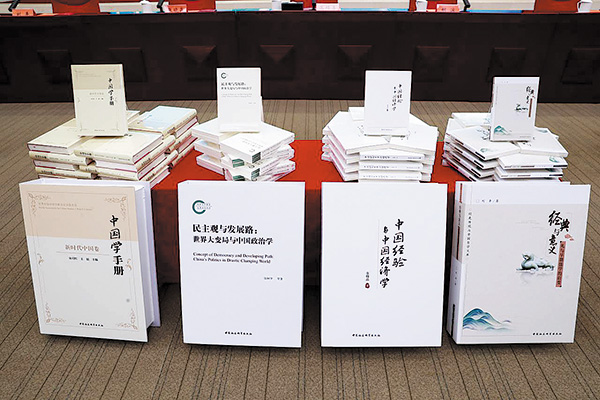Book looks at early pre-Qin social rituals
By WANG RU | China Daily | Updated: 2023-05-16 14:13

Liji, or The Book of Rites, a collection of texts about rituals before the Qin Dynasty (221-206 BC), which also shows the philosophical, educational, political and aesthetic ideas of the time, is an ancient classic of early Confucianism. But since the texts were disorderly, they didn't attract much attention of researchers until more records about them were unearthed from archaeological excavations in recent years, according to Liu Feng, a researcher with the Institute of Philosophy, Chinese Academy of Social Sciences.
He is the author of a book on the collection, Classics and Their Meaning: Evolution of Li and Early Confucianism, which was recently published by the China Social Sciences Press, and released in Beijing on May 5.
Liu has studied li (ritual) and Confucianism for more than two decades.
According to him, early Confucianism refers to that which was popular before the Han Dynasty (206 BC-AD 220), especially the Warring States Period (475-221 BC).
"Li is a very important issue stressed in early Confucianism. … It promotes the development of early Confucianism. The study of Liji can help make clear the process of how early Confucianism developed and became divided," says Liu.
He also mentions li lies at the core of Chinese culture and a social system that originated from the Western Zhou Dynasty (c. 11th century-771 BC) with regulations on ritual and music to strengthen people's concept of hierarchy and thus maintain social order.
The book mainly discusses the issue from four perspectives, including the development of Confucian thought in the Warring States Period and the construction of early Confucian political philosophy.
It also covers the formation of the early Confucian philosophy of history and the integration of li into the society of the Warring States Period.
"Liji not only plays a significant role in our study of early Confucianism, but also offers us some influential ideas in traditional Chinese culture, like 'when the Grand Course is pursued, a public and common spirit rules all under the sky', and 'acting in good faith and being friendly to others'," says Liu.
He also mentions that China's traditional philosophical ideas, such as pursuing harmony between people and nature, the people as the foundation of a state, and governing on the basis of virtues, are fully discussed in Liji.
"In-depth research on the collection unveils the rich connotations contained in it, and is significant for spreading the traditional culture of China," he adds.
The book was promoted with three other books as major academic results of the Chinese Academy of Social Sciences in May. According to Gao Peiyong, deputy director of the academy, he hopes the books can help build an academic system of philosophical and social sciences with Chinese characteristics.
























